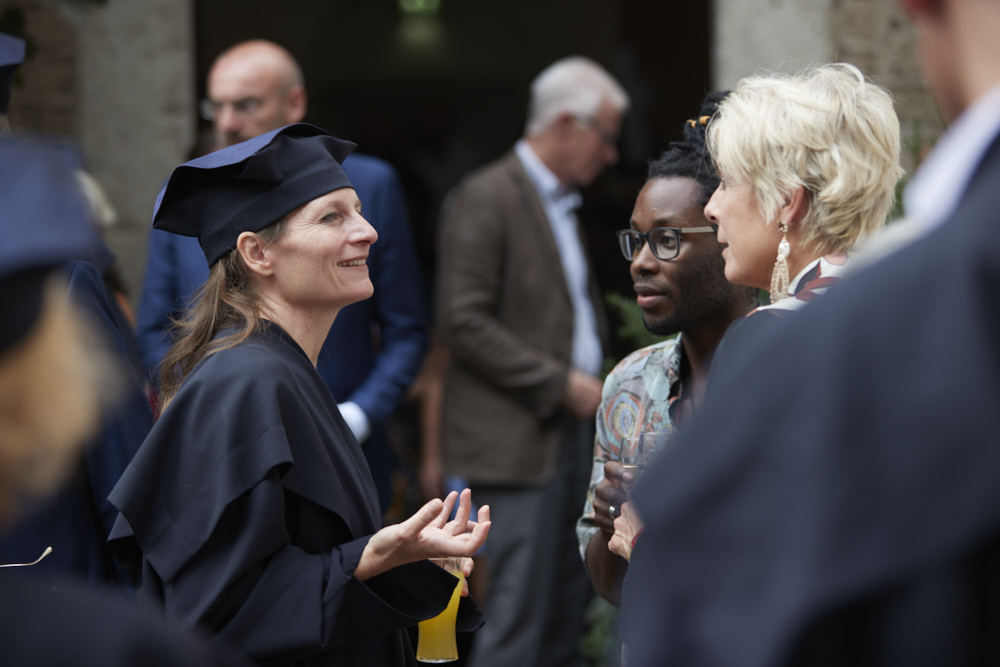Humanistic inspiration
The University for Humanistic Studies is inspired by humanism. Humanistic values such as dialogue, self-reflection, inclusion and connection with society are woven into our education and research. We study the role of humans as part of life on Earth. The scientific discipline of humanistic studies originated from humanism.
-
What is humanism?
Humanism is a philosophy that places rational considerations about humanity at its core. Developing and sharing scientific knowledge is therefore important. Values such as freedom, solidarity, justice, responsibility and inclusion guide this knowledge. Humanism is based on freedom of thought, respect for other views and a willingness to continue learning and changing.
Humanism also believes in the power of people to give meaning to their own lives. People are responsible for themselves, for others and for the world around them. At the same time, there is an awareness of people’s vulnerability and their interdependence.
Since the Enlightenment, humanism has often been understood as a philosophy in which the human perspective is central to understanding and giving meaning to life and the world. At the same time, this premise, that humans are the measure of all things, is increasingly being questioned, partly because of ecological, existential and decolonial insights that point to the limits and consequences of this perspective. -
What is a humanist chaplain?
A chaplain helps people find answers to life’s questions. Chaplains base their approach on what a person finds important and valuable in life. It is about personal meaning, respect for everyone’s freedom and taking emotions, doubts and choices seriously.
Chaplains work in healthcare, the army, prisons and education, for example. You can train for this profession by taking a master’s degree in Humanistic Sudies with a specialisation in spiritual counselling. Only graduates of this programme can be sent by the Humanist Association (Humanistisch Verbond) to institutions in the Netherlands as humanist chaplains.
-
Which humanist organisations are there in the Netherlands and internationally?
The University of Humanistic Studies collaborates with various organisations, including humanist organisations. These include the Humanist Association (Humanistisch Verbond), broadcaster HUMAN, Humanitas, the Foundation for Humanist Spiritual Care (SHGV) and HVO Primair (for humanist education). Internationally, there are networks such as Humanists International and the European Humanist Federation, which are committed to human rights, freedom of expression and global solidarity.


